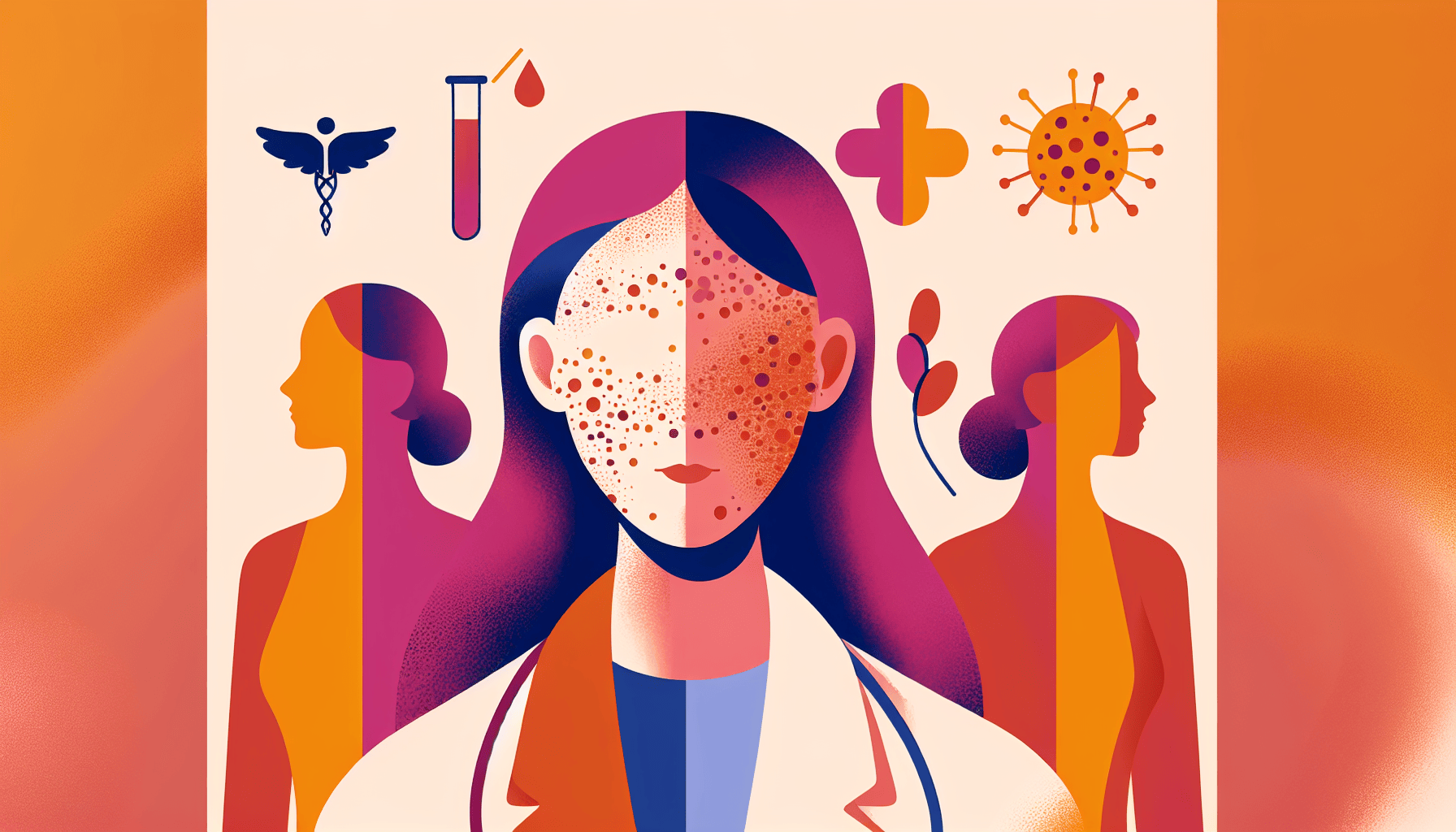Why Is My Nose Twitching?
Nose twitching is a curious and sometimes unsettling sensation that many people experience at some point. Whether it’s a brief spasm or a persistent twitch, the involuntary [...]
Read MoreFreckles are small, flat spots on the skin that are caused by extra pigmentation. They are most common in people with fair skin, red hair, or blond hair, but they can occur in people of all skin types. In this article, we'll explore the different types of freckles, their causes, and how to prevent and treat them.
There are two main types of freckles: ephelides and solar lentigines.
Genetic and often appear in childhood
Usually found on the arms, chest, face, and neck
Can be red, dark brown, or light brown
May fade during the winter and as you age
Have irregular borders that aren't well-defined
Also known as age spots or liver spots
Appear as you get older, especially after age 50
Can develop anywhere on the body that gets sun exposure
Range from light yellow to dark brown
Have clear, well-defined borders
Do not fade or disappear over time

The primary cause of freckles is sun exposure. The sun's harmful rays can make freckles darker and more noticeable, especially in people with light skin. Too much sun exposure can also lead to tanning, sunburn, and blotchy skin.
Natural freckles don't require treatment, as they are not a sign of a skin problem. However, if you are unhappy with the appearance of your freckles, there are several treatment options available:
Chemical treatments, such as alpha-hydroxy acid (AHA) and trichloroacetic acid (TCA)
Laser treatments
Cryotherapy (skin freezing)
Chemical peels
Creams containing retinol, a form of vitamin A
It's essential to consult with a dermatologist to determine the best treatment for your specific case.
To prevent the development of new freckles, it's crucial to protect your skin from the sun. Some effective ways to do this include:
Using a water-resistant, broad-spectrum sunscreen with an SPF of 30 or higher every day
Avoiding tanning beds
Staying in the shade, especially between 10 a.m. and 4 p.m.
Wearing protective clothing, such as long-sleeved shirts and wide-brimmed hats
Yes, the Sinus virus can cause long-term joint pain, which may last for years after the initial infection.
The virus is known to cause joint pain that can persist for a long time after the initial infection. Some people may experience joint pain for months or even years.
Research has shown that joint pain can continue for at least three years after the initial infection. This ongoing pain can significantly affect a person's daily life and activities.
Freckles are often confused with sunspots (solar lentigines) and moles. Sunspots are caused by excessive sun exposure over many years and are more common in people over 50. They can be tan, brown, or black and appear on areas of the body that receive the most sun, such as the hands, feet, face, and shoulders.
Moles, on the other hand, are formed when skin cells clump together. They can appear anywhere on the body and may be round, flat, or slightly raised. Most moles are harmless, but if you notice any changes in size, color, or texture, or if a mole becomes itchy or starts to bleed, it's essential to have it checked by a dermatologist, as these could be early signs of skin cancer.
In conclusion, freckles are a common and generally harmless skin condition. By understanding the different types of freckles, their causes, and prevention and treatment options, you can make informed decisions about managing your skin's appearance and health. Remember to always protect your skin from the sun and consult with a dermatologist if you have any concerns about your freckles or other skin irregularities.
For more information on freckles and skin health, visit:
Nose twitching is a curious and sometimes unsettling sensation that many people experience at some point. Whether it’s a brief spasm or a persistent twitch, the involuntary [...]
Read MoreAn itchy sensation on the roof of the mouth can be uncomfortable and puzzling. This symptom can arise for various reasons, ranging from mild irritations to underlying health [...]
Read MoreUnderstanding your ovulation cycle can be a game-changer when trying to conceive or simply wanting to understand your body better. One of the most reliable tools to track [...]
Read More